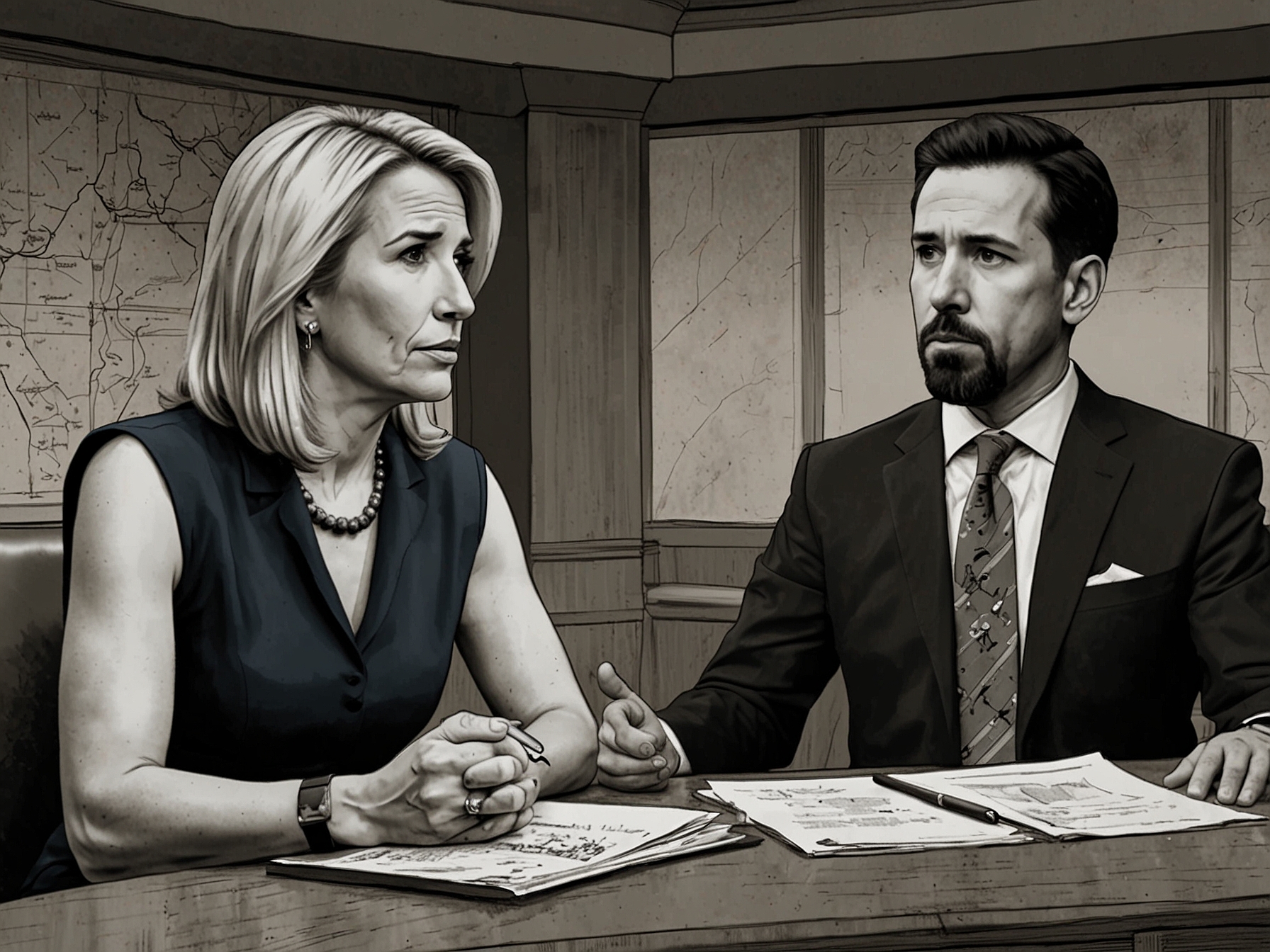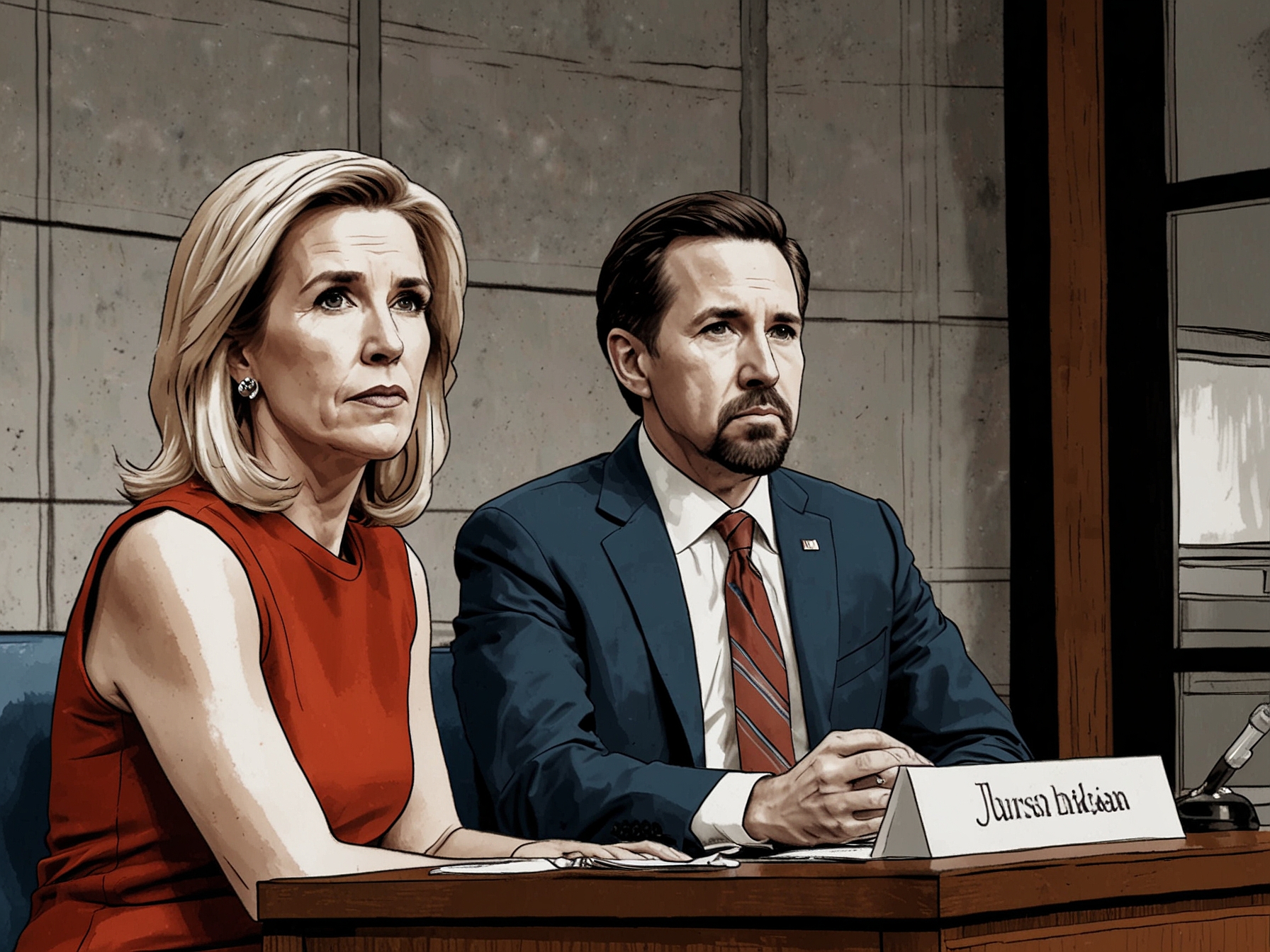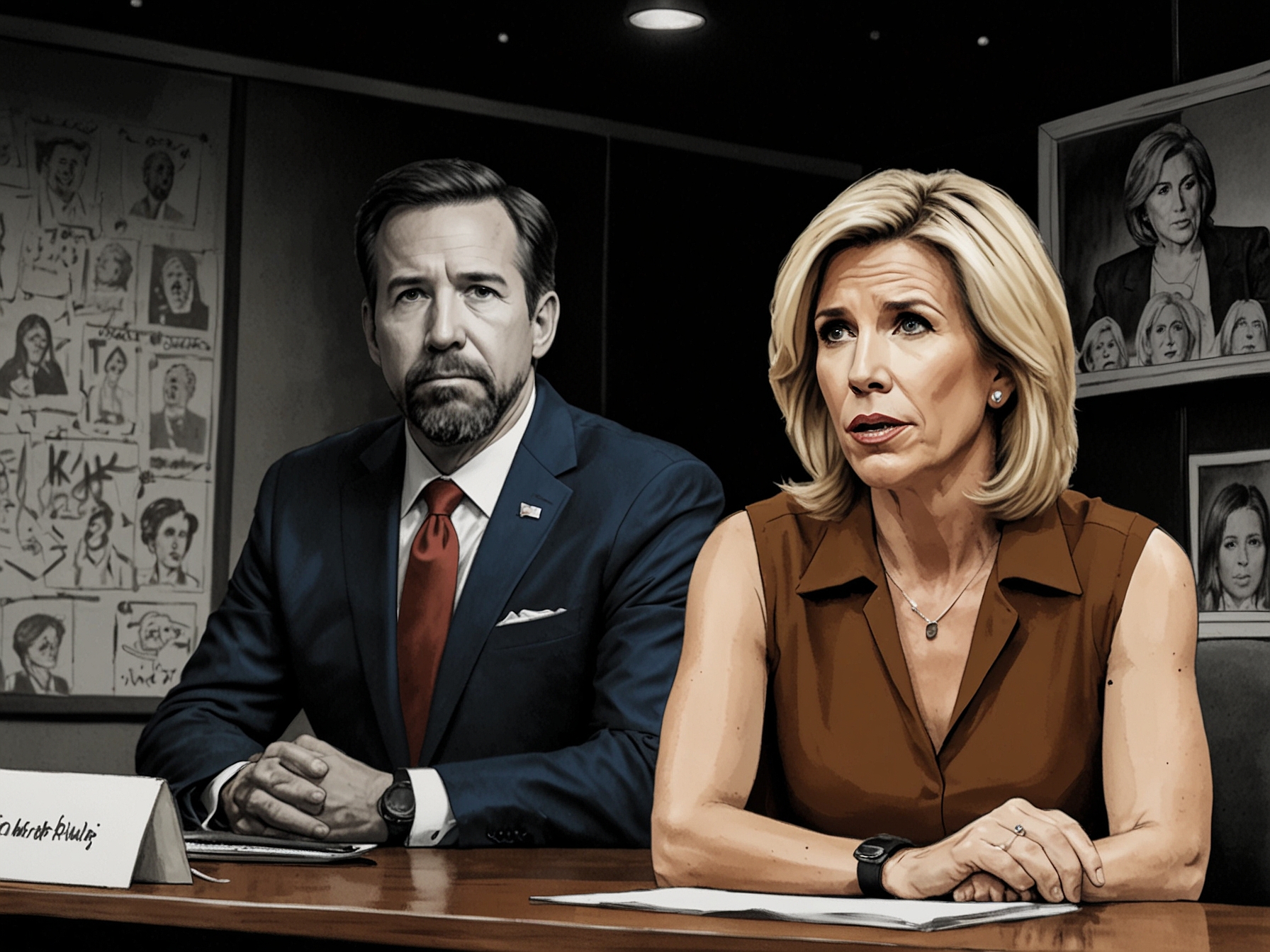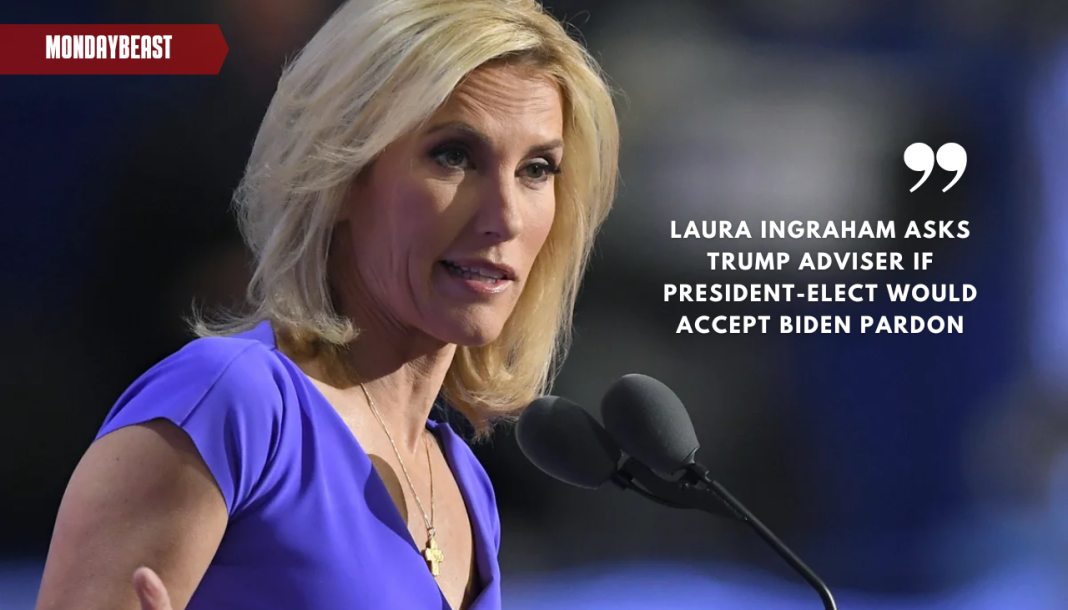Ingraham’s Question: A Surprising Introduction
Fox News host Laura Ingraham recently posed a curious question. She directly asked Jason Miller, a senior adviser to Donald Trump, if the president-elect would accept a pardon from President Joe Biden. It was a query that hung in the air, loaded with political implications. What would a pardon mean in the context of today’s divided nation?
Miller’s response was anything but direct. “At this point, I don’t know what Joe Biden is gonna pull,” he said, weaving a narrative thick with skepticism. This opaqueness left viewers scratching their heads. Ingraham pressed further, attempting to steer Miller toward a clearer response, but he deflected. His refusal to commit to an answer echoed a larger question about political strategies. Would Trump even want forgiveness from his political rival, or is this all part of a much grander stage play?
Legal Background: What Trump Faces

To understand the gravity of Ingraham’s question, we must consider Trump’s legal predicaments. Several federal cases hung in the balance from cycles past. Concerns about election interference and classified documents seemed to fade; yet, might they return to haunt him? Many people wonder how this interplay affects not just Trump but the broader political landscape.
Interestingly, a recent cancellation of Trump’s sentencing hearing for hush money payments signals a shift. Could these changes indicate a lessening of Trump’s legal woes? Or is it a momentary reprieve? Experts suggest that the Georgia case concerning the 2020 election may not resurface. This unpredictability leaves people questioning the consequences, not just for Trump, but for the integrity of the electoral system itself. What does this mean for American democracy?
The Idea of a Pardon: Biden’s Decision
Pardon discussions have swirled in political circles, especially following Biden’s controversial decision to pardon his son, Hunter. Critics and supporters alike are left pondering. Is it a familial duty, or does it have political ramifications? If Biden can extend clemency to a family member, why not to a former president?

Ingraham and Miller’s dialogue hinted at this notion. Independent Senator Joe Manchin suggested Biden could pardon Trump to create a “balanced” political environment. This suddenly transforms the narrative. What would such a gesture mean for healing America’s political divisions? Or could it further complicate an already turbulent relationship?
Public Reaction: Support and Opposition
Social media erupted with opinions following the exchange. Supporters of Trump echoed Miller’s sentiment, arguing that the former president committed no crime. Yet, skeptics pointed to the weight of evidence that contradicts this claim. How do people reconcile these opposing viewpoints? The political divide in America seems to widen at every turn.
In these conversations, I often think about the implications on everyday citizens. What impact does this legal drama have on the average American? For many, politics may feel distant. But these narratives aren’t just about the powerful; they affect our lives in tangible ways. Legal decisions trickle down, shaping policies and affecting livelihoods.
Looking Ahead: A Nation Divided

As we gaze into the future, the question lingers like an echo. Will Trump embrace a Biden pardon if offered? The stakes rise higher with each unfolding headline. Trust in the political process teeters precariously. What does it say about reconciliation when a political figure such as Biden contemplates pardoning his opponent?
In conclusion, the question posed by Ingraham was more than just a passing comment. It opened a Pandora’s box of conversations wrapped in legalities, morality, and political strategy. As we ponder these layers, we must consider the impact on our society. Will we ever find common ground? The complexities of these discussions seem destined to shape American life for years to come. Will political rivals ever bridge the chasm, or are we left to navigate this divisive terrain alone?




